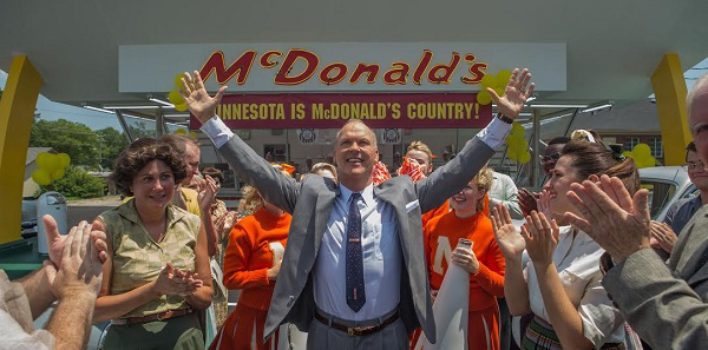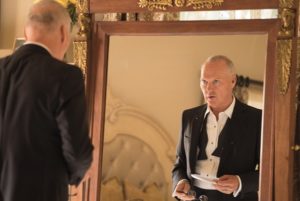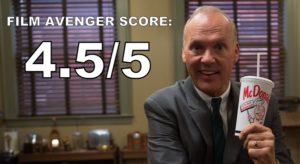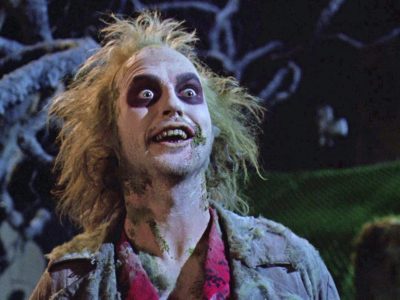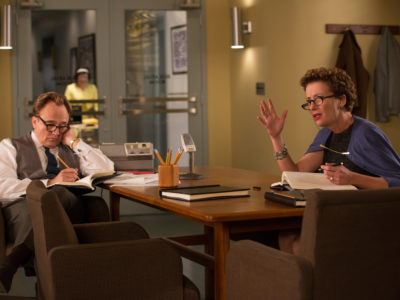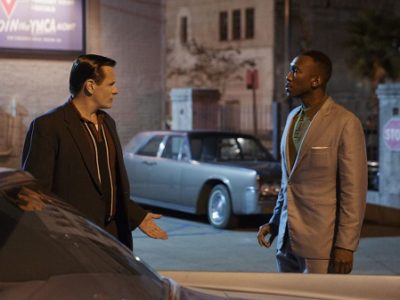Review| The Founder
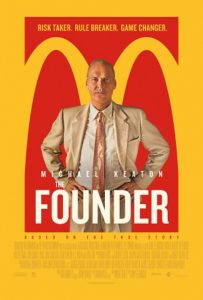 In the almost eight decades since its establishment, McDonald’s has become as synonymous with American culture as baseball. They continue to feed billions of people around the world.
In the almost eight decades since its establishment, McDonald’s has become as synonymous with American culture as baseball. They continue to feed billions of people around the world.
Lately, the fast food giant has been vilified for making Americans fatter and lazier (though I think there’s a little personal responsibility that should be tacked on to that). But the story of McDonald’s had honest, humble beginnings, and that is the subject of the outstanding new movie, The Founder.
Directed by John Lee Hancock, this film tells the story of one of the world’s most famous brands in an entertaining and thoughtful way. It’s a story of dreams, broken trust, and endless ambition. It’s not a story of faceless corporations, but one about human beings.
Aside from the great performances and wonderful storytelling, the film has a deep thematic soul to it. The story of McDonald’s is a triumph of the American free market system, and a much-needed love letter to this much-maligned economic system these days. But more importantly, it’s a textbook illustration of what success really means from two very different worldviews.
SPOILERS AHEAD
Stuff I Liked
Michael Keaton was outstanding as Ray Kroc, the psuedo-founder of McDonald’s. He gives Kroc an interesting mix of respectable small-town gumption and slimy used car salesman-type hucksterism (which will come into play later on). If it were any other actor, Kroc might have come off as creepy or sadistic. But Keaton’s comedic timing even makes Kroc’s most unpleasant attributes entertaining.
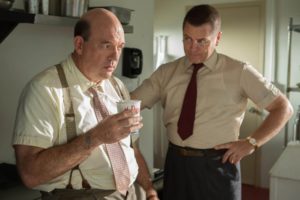 The other outstanding performances came from John Carroll Lynch and Nick Offerman – who portrayed the actual McDonald’s founders, Mac and Dick McDonald. They played off each other and Keaton so wonderfully. Lynch was the genial, positive one and Offerman’s Dick was the more analytical realist. Both brothers trying to get a handle on this guy they wanted to trust but couldn’t completely (for good reason).
The other outstanding performances came from John Carroll Lynch and Nick Offerman – who portrayed the actual McDonald’s founders, Mac and Dick McDonald. They played off each other and Keaton so wonderfully. Lynch was the genial, positive one and Offerman’s Dick was the more analytical realist. Both brothers trying to get a handle on this guy they wanted to trust but couldn’t completely (for good reason).
The Founder is one of the most succinct and well-told films I have seen in years. Director John Lee Hancock has a real talent for historically-based narratives. His Saving Mr. Banks was a charming look at another famous American business mogul, and was one of my favorite films of 2013.
Stuff I Didn’t Like
Though the sets and actors did outstanding jobs maintaining the time period, I was taken aback at the way actual vintage film footage was handled. Several times in the film, Hancock used actual footage of the period in montages, and the footage looked like it had been ripped from YouTube or Google. It was poor quality and looked extremely pixelated.
In some places, the passage of time was a little too subtle. The main body of the narrative didn’t take place over a long period of time, but the last scenes took place almost ten years after the previous scenes. It would have been nice if Keaton was aged at least a little more (Ray Kroc would have been almost 70 by that point).
Stuff to Ponder
McDonald’s is a quintessential American company that came from humble beginnings to become a worldwide icon. In fact, the McDonald brothers essentially invented fast food as we know it today. Their story, as well as their dealings with Ray Kroc, is an absolutely perfect (and much-needed) love letter to American free enterprise.
Too many people today bash American capitalism and free markets, in most cases profiting from the very system they decry (I’m looking at you, Michael Moore). The Founder really puts the free market in perspective and gets the audience to look at it for what it is: a tool that is morally neutral.
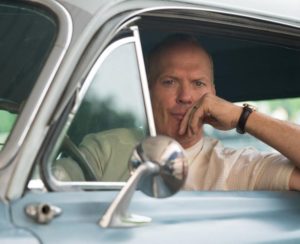 Ray Kroc was a capitalist, and so were the McDonald brothers. They are two sides of the same coin, and both used the free market system to achieve something great. However, it is the motivations of individuals, not the system itself, which should be scrutinized.
Ray Kroc was a capitalist, and so were the McDonald brothers. They are two sides of the same coin, and both used the free market system to achieve something great. However, it is the motivations of individuals, not the system itself, which should be scrutinized.
Mac and Dick McDonald wanted to run a great restaurant and fairly compete with their rivals by creating a better product. Kroc was in it to “win,” and did not care who he had to manipulate or step on to get where he wanted to go. Both of these ways of participating in the free market can happen, but is it really the fault of the individuals participating.
Ray Kroc indeed represents the downside of capitalism, but what we should do is look closer, to the individual and his motivations. In The Founder, Ray Kroc is portrayed doggedly pursuing success all his life, frustrated with what he perceived as “failure” early on. His obsession with success blinded him to the wonderful life he already had: a good home with a family.
In a moment of quiet frustration, Kroc’s first wife Ethel asked him when would enough be enough. Kroc responded with an honest “probably never.”
By all secular definitions, Kroc was a huge success – building a fast food empire virtually from the ground up and making a lot of money in the process; the American Dream, so to speak. But in his pursuit of more and more notoriety and wealth, he pushed people aside and actively sabotaged some to get where he wanted to go.
Using his aforementioned homespun charm and used car salesman slickness, Kroc rose to fame and fortune on other people’s backs, specifically the McDonald brothers, and then outflanked them – actively taking credit for their innovation. Kroc also divorced his first wife because she wasn’t being supportive enough of his dream, and found someone else he deemed better suited to his aspirations.
“What good will it be for someone to gain the whole world, yet forfeit their soul?” Matthew 16:26
The Bible is full of stories of people seeking contentment from the material things of the world – seeking fulfillment and purpose in the pursuit of earthly splendor. And the inevitable conclusion reached is that there can be no peace in the pursuit of the material because there will always be something more that keeps us wanting.
In the Book of Matthew, Jesus said, “Do not store up for yourselves treasures on earth, where moths and vermin destroy, and where thieves break in and steal.” (6:19) Earthly wealth will do us no good, eternally speaking. The monuments we build to ourselves, all our earthly possessions will one day become dust. So we must not become occupied with accumulating these things. Because in the end, it doesn’t matter.
There is nothing wrong with going into business and doing something well, getting rewarded for it in the process. The McDonald brothers were an example of that ideal. They were content doing what they were doing, and doing it well. I’m sure they would have eventually franchised more than they did before Kroc came in, but they wanted to do it their way, which was far less aggressive than Kroc’s, focusing on quality instead of quantity.
In the final scene of the film, as Kroc is practicing his speech, there seemed to be a moment where he is filled with a twinge of regret for the things he had done to the McDonald brothers and his first wife. And though this is pure speculation on my part, his fervent support of charities in his later years may have been a way of coping with his guilt.
So What I’m Trying to Say is
The Founder is a great American story, thoughtfully told and told well. Great performances, excellent directing and a succinct script make this film a joy to watch. John Lee Hancock has a real talent for making heartfelt real-life American stories, and I hope he continues to make movies like this one.
This film also has a solid thematic core. It’s a tale of the upside and downside of capitalism. But unlike many modern filmmakers, it doesn’t blame the system, but the individuals who participate. Ray Kroc could be used as a model for the downside of free markets – and his motivations bring up the biblical truth that money and fame will bring no one true peace in this world.


